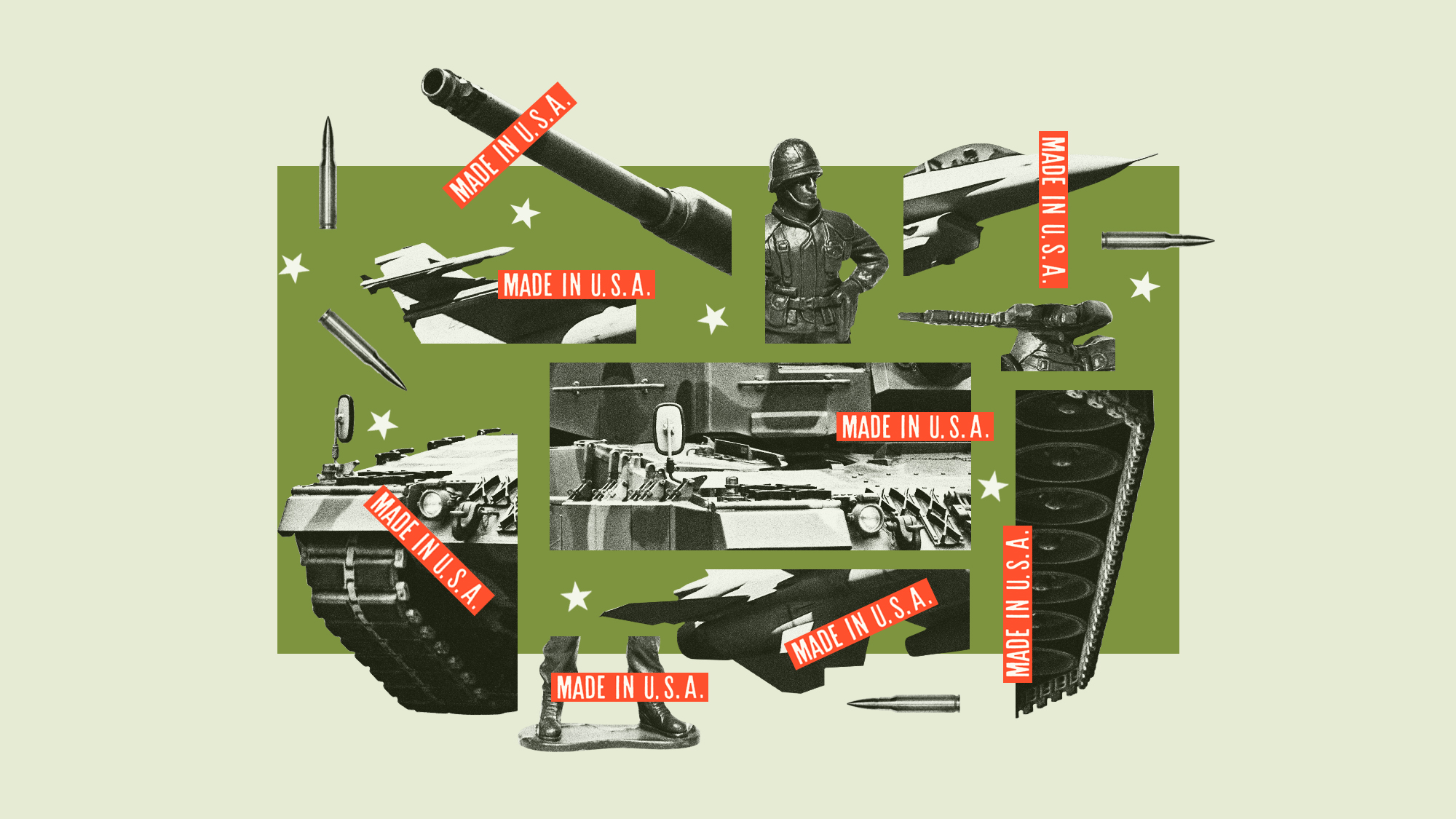Is Europe's defence too reliant on the US?
As the UK and EU plan to 're-arm', how easy will it be to disentangle from US equipment and support?

A free daily email with the biggest news stories of the day – and the best features from TheWeek.com
You are now subscribed
Your newsletter sign-up was successful
Independence – and how to achieve it – is focusing the minds of European leaders, as they contemplate breaking away from their decades-long reliance on the US for security.
The once unshakeable belief that the US would honour its Nato commitments and come to the continent's collective defence has meant Britain, and other European nations, had become "increasingly dependent on the US to organise, manage and execute" military operations, said The Times. A taste of the second Trump presidency "leaves that expectation in tatters".
What did the commentators say?
In mere weeks, Donald Trump and Vice-President J.D. Vance have "spirited away confidence in the US defence umbrella that has sheltered Western Europe since 1945", said James Fennell at the US think-tank Center for European Policy Analysis, but the "US realignment" away from Europe and "towards the Asia-Pacific" has actually been "telegraphed for a decade". UK and EU political leaders have simply preferred "to disbelieve these signals because they could not bring themselves to contemplate the evaporation of the basic assumptions" to which "Nato's defences are anchored".
The Week
Escape your echo chamber. Get the facts behind the news, plus analysis from multiple perspectives.

Sign up for The Week's Free Newsletters
From our morning news briefing to a weekly Good News Newsletter, get the best of The Week delivered directly to your inbox.
From our morning news briefing to a weekly Good News Newsletter, get the best of The Week delivered directly to your inbox.
The UK's reliance on the US in both military and intelligence matters has opened it up to particular "vulnerabilities", said George Monbiot in The Guardian. The two countries work together on a "wide range of joint intelligence programmes" but, effectively, the much larger US National Security Agency uses Britain's GCHQ "as a subcontractor".
Likewise with the British Army, which will "dip below 70,000 this year" and, as such, "relies on the US for key enablers, such as communications, logistics, personnel, command, engineering and medical treatment", said The Times' Larisa Brown. On multinational exercises, it is "unable to communicate with its Nato counterparts without the US providing communications equipment", an army source told the paper.
Europe, as a whole, "lacks military transport and logistics chains", said Lorne Cook at The Associated Press. And, while "the continent's combined armies total around 2 million personnel", few "can be effectively deployed". Without US back-up, "Europe could need 300,000 troops" to deter Russia, according to estimates from the Brussels-based Bruegel think-tank. The recent proposal of a peacekeeping force in Ukraine involved fewer than 30,000 European troops on the ground, backed by air and sea power, but "finding even that many poses a challenge".
What next?
European Commission President Ursula Von der Leyen has said that, at an emergency meeting of EU leaders on Thursday, she will present a "comprehensive plan" to urgently "re-arm Europe". She said member states must be given "more fiscal space to do a surge in defence spending".
A free daily email with the biggest news stories of the day – and the best features from TheWeek.com
Europe "can build up most of the critical defence enablers needed to deter or defeat Russia without US support within five years – provided the political will to invest is there", said Defense News, after a survey of security researchers and experts.
As for Britain – which now has an additional £6.5 billion a year to spend on the armed services – much will depend on the outcome of the government's strategic defence review, which expected in the spring or summer. In it, "there will be a clear focus" on "pouring more money into UK sovereign defence capabilities", said The Times.
"Disentangling from the US will be difficult and expensive", said The Guardian's Monbiot. But "failing to do so could carry a far higher price".
Elliott Goat is a freelance writer at The Week Digital. A winner of The Independent's Wyn Harness Award, he has been a journalist for over a decade with a focus on human rights, disinformation and elections. He is co-founder and director of Brussels-based investigative NGO Unhack Democracy, which works to support electoral integrity across Europe. A Winston Churchill Memorial Trust Fellow focusing on unions and the Future of Work, Elliott is a founding member of the RSA's Good Work Guild and a contributor to the International State Crime Initiative, an interdisciplinary forum for research, reportage and training on state violence and corruption.